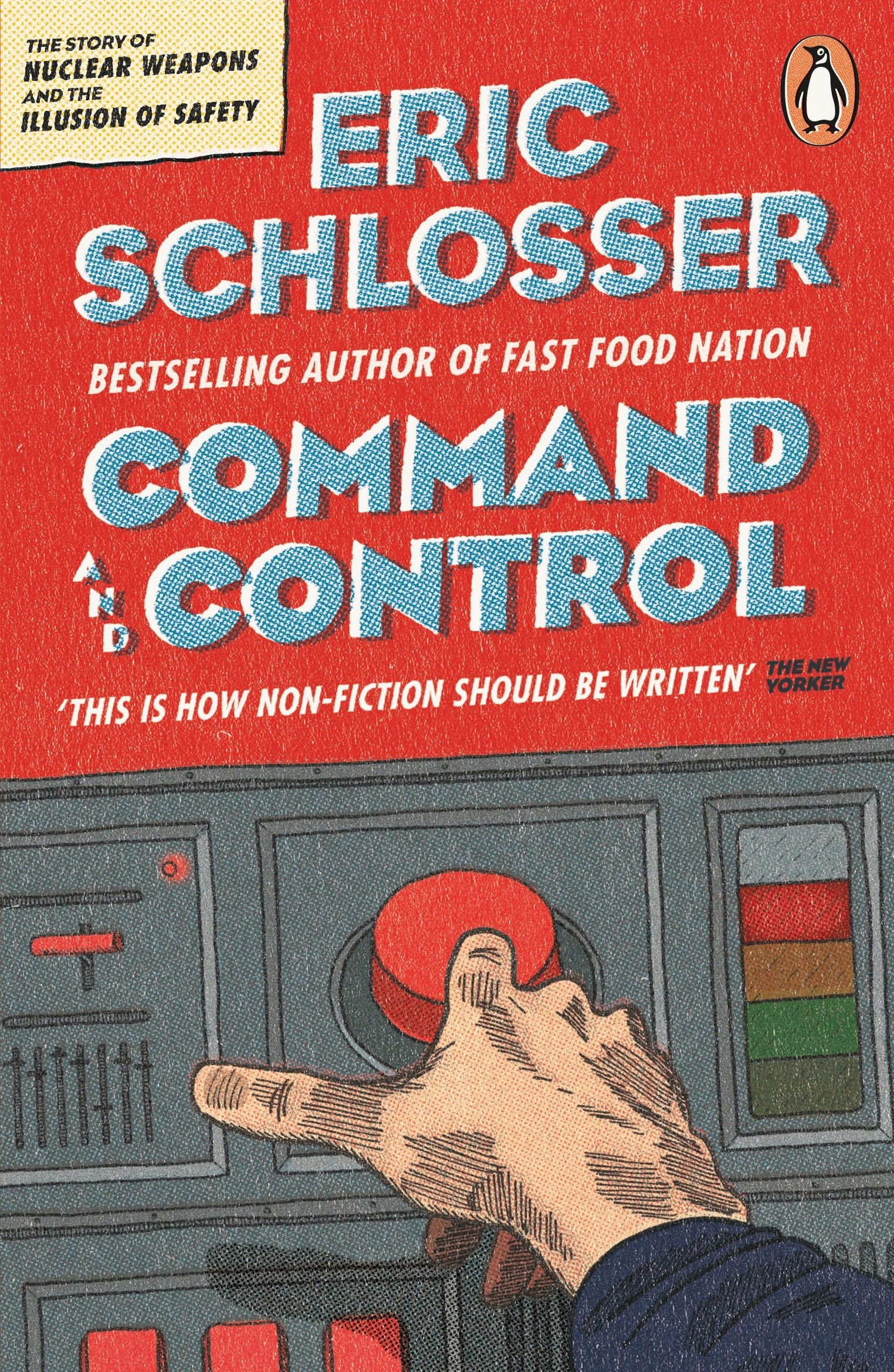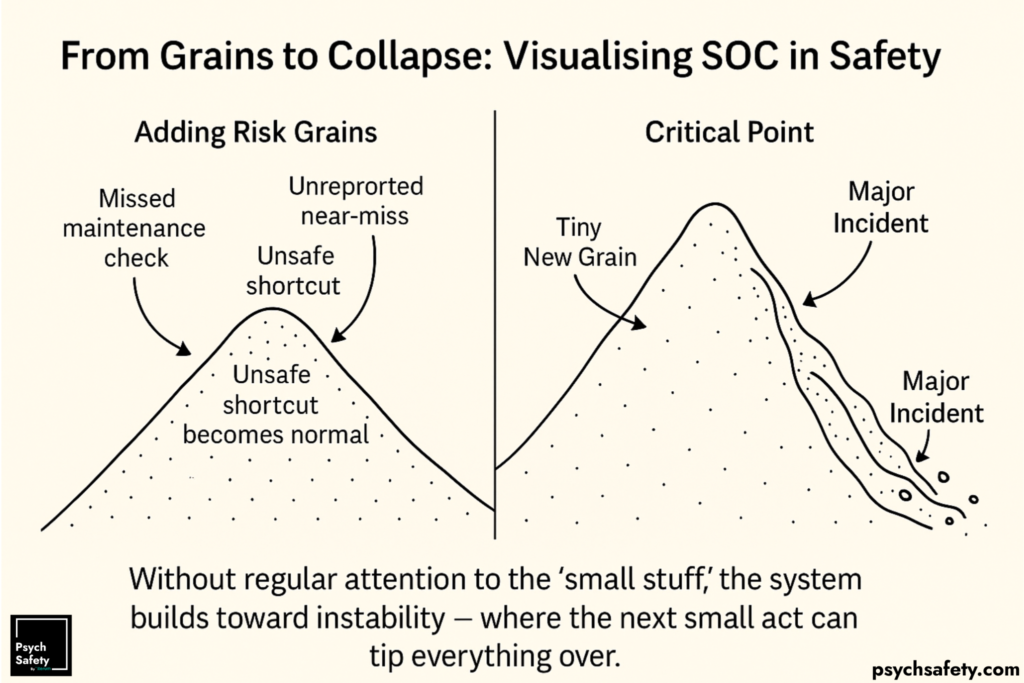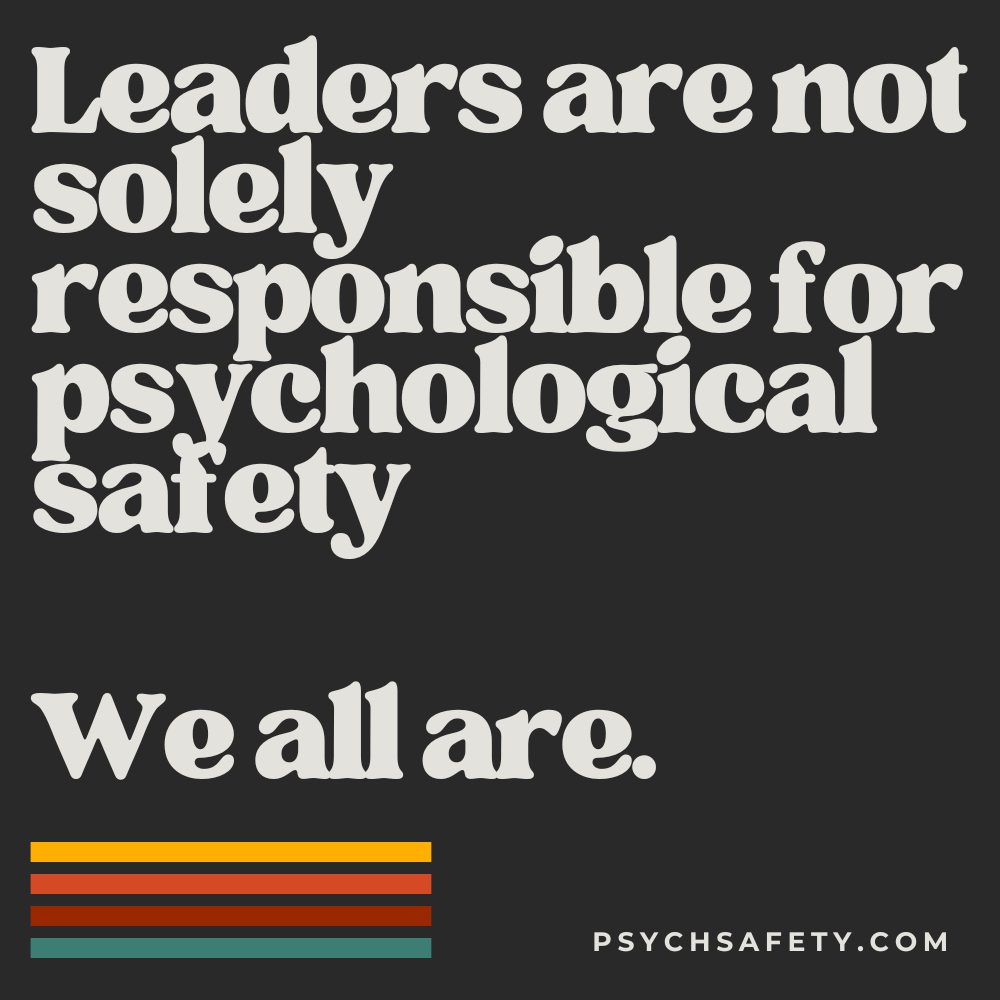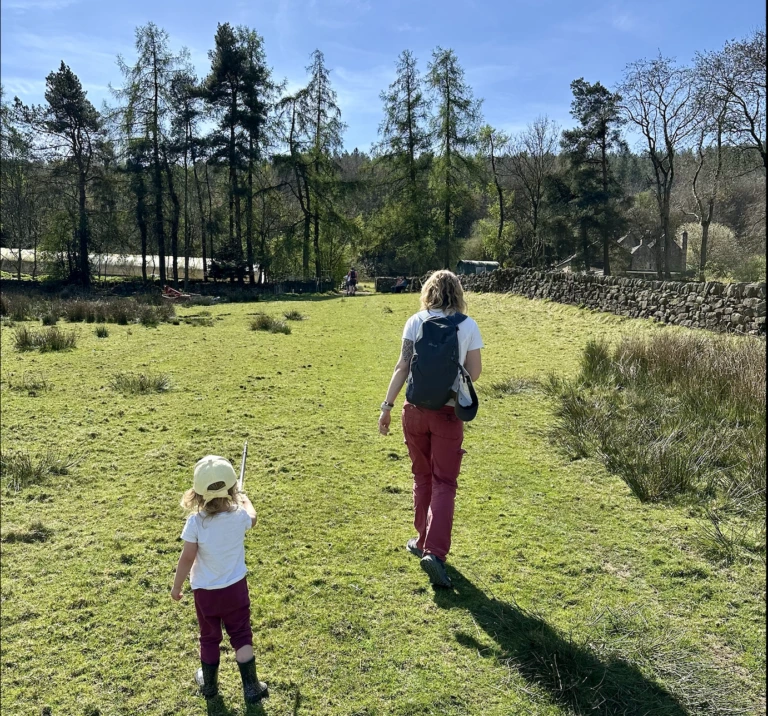The 2024 Psych Safety Book List
In case you’ve managed to avoid the onslaught of marketing emails from companies trying to sell you every conceivable product, it’s Black Friday today! Instead of trying to sell to you, we thought we’d share our Psych Safety Christmas 2024 Booklist. It’s an eclectic selection (would you expect anything less?!), and we hope you’ll find some inspiration and ideas to gift to yourself or someone else. Because who doesn’t love giving and receiving books?
We didn’t know where to start with categorising or ordering these, so we’ve simply gone with alphabetical order by title! The links go to Amazon, because that seemed best for a worldwide readership, but we also recommend looking at sites like Abe Books where you can search for second hand books from independent sellers.
Command and Control by Eric Schlosser

This is an incredible, and somewhat scary at times, read about the development and control of thermonuclear weapons in (mainly) the USA over the past 70 years. By telling a tale of a disaster involving a Titan-II missile, interwoven with the history of nuclear arms technology, politics, and culture over the preceding period, he highlights how narrowly we avoided disaster on a multitude of occasions. Fundamentally, yet again, it’s humans that have kept us safe when mistakes happen and complex technology, with catastrophic potential, inevitably fails.
“The instinct to blame the people at the bottom not only protected those at the top, it also obscured an underlying truth. The fallibility of human beings guarantees that no technological system will ever be infallible.”
Crisis-Ready Teams by Mary Waller and Seth Kaplan

This is a brilliant book. Mary and Seth are crisis team experts, and used audio and video footage of crisis simulations alongside engaging stories as told in the book, to surface the competencies and capabilities inherent in teams and organisations that respond effectively to crises. Drawing on examples such as Sully landing on the Hudson, September 11, the Covid pandemic and others, it’s a compelling read. There’s no explicit focus on psychological safety (sometimes it rather seems that psychological safety isn’t a “cool” thing to write about!) but all the elements are there – power dynamics, shared patterns of interaction, mental models, reciprocity, trust and more.
“Members [of the team] did not compete for the “right answer” or take action unilaterally in hopes of becoming the hero. All members know that their job involves monitoring the evolving crisis and then freely sharing information about the situation without fear of reprise. The mindset of the successful teams reflects that members are working to diagnose and solve this problem as a collective. Speaking up is not just accepted; it is encouraged.”
Exam Nation by Sammy Wright

One for parents, teachers and anyone who cares about schools and education. This is a brilliant and very readable look by headteacher and writer Sammy Wright at the English education system – what it’s doing, what it’s missing and how we might rethink some of the assumptions at the heart of schooling. There are no easy answers here, but there are some brilliant ideas, rooted in actual lived experience of the education system.
“School is not just the sum of what you do to children while they’re there – it is a process they are going through. Lessons are not merely standardised packages of learning, to be received unmediated and stacked up neatly. Rather, they are absorbed in the midst of the fierce heat of puberty, distorted and changed, and heightened by a self that transforms as it listens.”
Humble Inquiry, by Edgar Schein

Consistently on our workshops’ “recommended reading” lists, this remains one of the most thought-provoking books we’ve come across on the art of building meaningful relationships through curiosity and genuine respect for others’ perspectives. Schein challenges our instinct to “tell” by advocating for Humble Inquiry, that is asking open, sincere questions that foster trust and initiate dialogue. What stands out is how he connects this to the way cultural influences, such as individualism or hierarchy, shape the way we communicate. Full of personal stories, professional reflections, and practical tips, it’s a great read for anyone, leaders, coaches, or team members, looking to improve how they interact, both at work and beyond. It’s thoughtful and down-to-earth, and its insights have stayed with us long after finishing the book.
“Gratuitous telling betrays three kinds of arrogance: (1) that you think you know more than the person you’re telling, (2) that your knowledge is the correct knowledge, and (3) that you have the right to structure other people’s experience for them.”
She is Fierce compiled by Ana Sampson

A brilliant collection of poetry highlighting the voices and perspectives of a wonderfully diverse range of women. You might recognise one or two from our weekly poem in previous newsletters!
“Gallant challenger, millioned-hope bearer,
The stars are your beacons, earth your inheritance,
Meet blaze and cannon with your own heart’s passion,
Surrender to none the fire of your soul.”
Excerpt from “Ruth” by Pauli Muray
The Book of Trespass by Nick Hayes

Beautiful, rich, peaceful, and at the same time fosters a burning rage against the injustice inherent in so few people controlling access to land that, once, we all shared as common land. Hayes writes so eloquently and persuasively while conveying incredible detail and insight. It’s centred on the UK, and more specifically England, but there are concepts and insights which have far wider relevance too.
“But mindfulness is just idleness without the social stigma, repackaged with a barcode and brand. Idleness, from the Germanic word Idla, meaning worthless, has historically been a term given to any use of time not dedicated to turning profit; it is a slur on a vernacular use of time. It is the bane of the authorities and used to this day to describe anyone who is not doing what they ought to be doing. And since the industrial revolution, with the work ethic firmly installed into our modern minds, the final victory of commercialism has been to sell idleness back to us. This is rentier capitalism of the mind – access to experience is enclosed, monopolised and rented out as a commodity.”
The Salt Path by Raynor Winn

Such a beautiful read that makes you rethink… well, everything really. Part memoir, part travel writing, part personal reflection, it’s the story of Winn and her husband, a couple made homeless and facing a life-altering diagnosis, and how they choose to walk the South West Coast Path, taking this chapter of their life quite literally next step at a time. It’s rare to find a book that challenges your personal values and ethics while holding a mirror up to how we treat one another as a society – and all while telling a deeply engrossing, immersive story. We challenge you to read it and not want to set off on a long distance walk…
“Most people go through their whole lives without answering their own questions: What am I, what do I have within me? The big stuff. What a waste.”
The Seduction of Quantification by Sally Engle Merry

Sally Engle Merry uses the lens of global indicators on human rights, gender violence, and sex trafficking to show how numbers convey an aura of objective truth and scientific validity. She argues that measurement systems constitute a form of power through defining the categories and measures that shape the way we view the world; these measures incorporate definitive theories about social change in their design, but rarely acknowledge them. Metrics (numbers, scores, ratios, etc) are highly seductive in their promise of providing concrete knowledge about how the world works, but alone they are insufficient, or even harmful. In reality, metrics require qualitative context alongside thoughtful analysis and interpretation.
“Measurement is a technology with power, harnessed by those able to use it.”
Honourable mention to The Right Kind of Wrong by Amy Edmondson

In case you haven’t already read it, Amy’s “The Right Kind of Wrong” is excellent, and a really enjoyable read. Based on three archetypes of failure: simple, complex, and intelligent, Amy builds on the underlying dynamics around psychological safety and organisational (and personal) success, using examples such as the Andon Cord, Paul O’Neill at Alcoa, and the Challenger Disaster. Success requires failure – but only if we do it intelligently.“…a psychologically safe environment in which people know they will not be blamed for mistakes or disappointing results is the bedrock that allows organizations and families alike to experience less of the wrong kind of failure and more of the right kind.”
A Pre-Christmas Giveaway
We love sharing books, so we’re offering a copy of a book of your choice from this Psych Safety Christmas 2024 Booklist to five lucky newsletter readers!. Reply to this email before Friday 6th December and tell us your name, book of choice and postal address and we’ll enter you into the prize draw
As a reminder, we’re also donating £200 to a charity chosen by one of our lovely newsletter readers before Christmas – you don’t need to do anything to be entered into this draw – you’re already in simply by subscribing. We’ll simply email the winner and ask you to choose your favourite charity!
We’ll be recording some videos shortly about some of these books, over on our Youtube channel!
Psychological Safety in Practice
Eye Contact
It sometimes feels like we’re pushing back against a tide of misinformation about psychological safety on LinkedIn and other social media. One of those sticky misconceptions is that “good” communication, or “high psychological safety” involves a lot of eye contact. Whilst that has some truth to it, this paper shows how eye contact is a *signal* for engagement, not necessarily a *driver* of engagement. People who find eye contact overly burdensome or difficult may use alternative cues (such as vocal tone, gestures, or pauses) to signal engagement instead of eye contact. Eye contact signals “synchrony” (i.e. shared attention to the conversation), and moving away from eye contact signals independent thought (asynchrony) – where we’re thinking more deeply.
It’s important to recognise that avoiding eye contact doesn’t necessarily mean a lack of engagement or low psychological safety. For neurodiverse folks, alternative conversational strategies can serve the same purpose as eye contact for neurotypical people.
In cultures and contexts where eye contact is deemed disrespectful or overly intimate (e.g., some East Asian, Middle Eastern, or African cultures), shared attention can still be achieved through culturally appropriate cues and responses as above.
We should be very careful indeed that we don’t default to a Westernised, neurotypical, “one-size-fits-all” ideal of what psychological safety looks like, because even for something as fundamental as eye contact, it can look very different for different people.
Spoons
You may have heard people talking of “spoons” in relation to chronic illnesses, neurodiversities, or other conditions that affect our capacity to deal with the demands of daily life. Christine Miserandino, who has lupus, created the spoon theory metaphor to help people understand what it’s like.
People who are neurotypical, or not living with health conditions often (not always!) wake up with a sufficient amount of energy for the day. They can get out of bed, shower, dress, make dinner, exercise, go to work, and visit friends without a great deal of thought or pre-planning.
However, some neurodiverse people, or those living with chronic health conditions start each day with a more limited amount of energy: a limited number of spoons. It varies from person to person, and day to day, and only you know how many spoons you have.
Imagine you have 12 spoons, which is the amount Christine used to illustrate her theory. In an average day, you may need to:
- Get out of bed
- Brush your teeth
- Get dressed
- Make and eat breakfast
- Commute to work
- Work
- Commute home
- Make and eat dinner
- Shower
Right away, this comes to 9 activities. Some of these tasks, like brushing your teeth, may only use 1 spoon, while working for a day could use up many more spoons, so 12 might not be enough for all of this. That means taking some things off the list.
This week’s poem:
Invitation, by Shel Silverstein
If you are a dreamer, come in
If you are a dreamer, a wisher, a liar,
A hope-er, a pray-er, a magic bean buyer…
If you’re a pretender, come sit by the fire
For we have some flax-golden tales to spin.
Come in!
Come in!
The post The 2024 Psych Safety Book List appeared first on Psych Safety.





